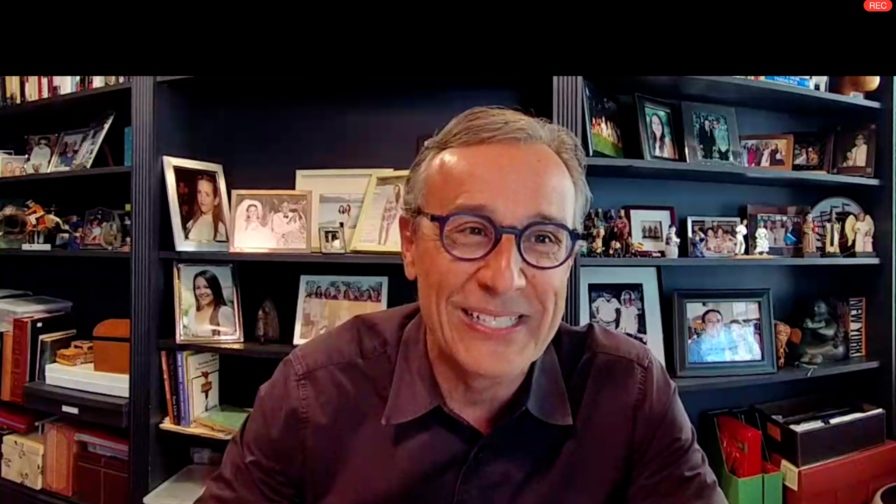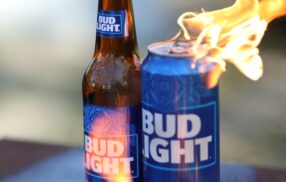
Facebook’s Former Top Marketer on Getting a Seat at the Table and Driving Real Value
Antonio Lucio’s career has offered a unique vantage point from which to consider the evolution of the marketing function, with formative years spent leading marketing efforts for consumer and packaged goods giants before transitioning to chief marketing officer roles at top leading technology companies, culminating with the recently concluded two-year stint as Global CMO at Facebook.
When working at a consumer goods company — in Lucio’s case, Procter & Gamble, Kraft and eventually PepsiCo — the consumer’s needs guided the work from start to finish, with projects beginning with consumer-based research and perceived customer need driving decisions from positioning to distribution.
At a technology firm — in addition to Facebook, Lucio has led the marketing function at Visa and HP — the beginning of the journey is often not the consumer but the invention itself — the algorithm that powers Google or the then new socially connected network site Facebook.
“Amazon could not have been born out of a quintessential consumer good company … however, if you want to learn how to be a CEO, consumer packaged goods provides better training because you lead the whole process.” said Lucio, who spoke to the University of Virginia and Darden School communities at a virtual event hosted by Darden Marketing Professor Kimberly Whitler.
It is important for would-be professional marketers to understand who controls the P&L and what drives the growth levers of a company. In CPG, the brand manager owns the strategy, product, and communications. In tech, these pieces are split between different functions and individuals.
For major tech firms, where marketing has sometimes taken the form of performance marketing of the pay-per-click world, “there was a view that if the product was good, you didn’t need to do anything else,” said Lucio.
That described the early ethos at Facebook, Lucio said, where for the first decade of existence it appeared the company “could do no wrong.” Then, the Cambridge Analytica scandal hit, and the very nature of the business and the way it conducted its mission to connect the world was called into question.
“Because the company had never engaged [with the public] about its decision-making, a complete counter narrative developed,” said Lucio. “The company was forced to react.”
Lucio’s distillation of that lesson? A brand is not the product, rather, it is the product plus the conversation people are having about the product.
That more expansive consideration of brand consideration has implications for the CMO, a role that, if performed well, translates into what Lucio described as a chief brand officer, chief people officer, chief alignment officer and chief brand evangelist, among other functions.
Alignment, in particular, was an important skill for marketers interested in “earning a seat at the business table,” Lucio said, noting the significant amount of time he spent at HP and Facebook with those in charge of product, revenue, and communications in order to both understand the entire ecosystem and explain a potential marketing role in aligning and furthering the enterprise. That sort of alignment effort wasn’t always present or even possible in his earlier positions, Lucio suggested.
“When I looked at my roles, from brand artisan and storyteller I had become in a way the general manager of the marketing function, where 80 percent of my time is about strategy and alignment and building capability and 20 percent is about the craft of storytelling and brand experience,” Lucio said.
A successful marketing leader “understands the business deeply,” and could be described as a “business person first and an artisan second,” Lucio said.
The former Facebook CMO said the marketing function in general was at a “crossroads moment”. Data-driven insights and analytics should impact the marketing “earlier in the game,” and brand and performance need to be knit closer together.
Moreover, the fallout from the coronavirus pandemic, with most companies chasing growth, opens the door for the marketing function in an organization to earn that seat at the table, to listen to the business units and help articulate the value of marketing and how it can lead to measurable growth. From the consumer perspective, brands successfully connecting to consumers in the COVID world are those that have proven to be useful to people; helpful for communities; and communicating their story in a selfless manner, Lucio said.
“I hope, for the sake of the practice, we can maintain those concepts,” he said.
Having put the wraps on what Whitler described as the “quintessential blue chip resume,” Lucio said he plans to spend the rest of his professional life driving diversity, equity and inclusion within the marketing field. Ensuring adequate representation across the entire marketing value chain is both his passion project and one he expects will drive better business results for those who take the mandate seriously.
The University of Virginia Darden School of Business prepares responsible global leaders through unparalleled transformational learning experiences. Darden’s graduate degree programs (MBA, MSBA and Ph.D.) and Executive Education & Lifelong Learning programs offered by the Darden School Foundation set the stage for a lifetime of career advancement and impact. Darden’s top-ranked faculty, renowned for teaching excellence, inspires and shapes modern business leadership worldwide through research, thought leadership and business publishing. Darden has Grounds in Charlottesville, Virginia, and the Washington, D.C., area and a global community that includes 18,000 alumni in 90 countries. Darden was established in 1955 at the University of Virginia, a top public university founded by Thomas Jefferson in 1819 in Charlottesville, Virginia.
Press Contact
Molly Mitchell
Associate Director of Content Marketing and Social Media
Darden School of Business
University of Virginia
MitchellM@darden.virginia.edu





